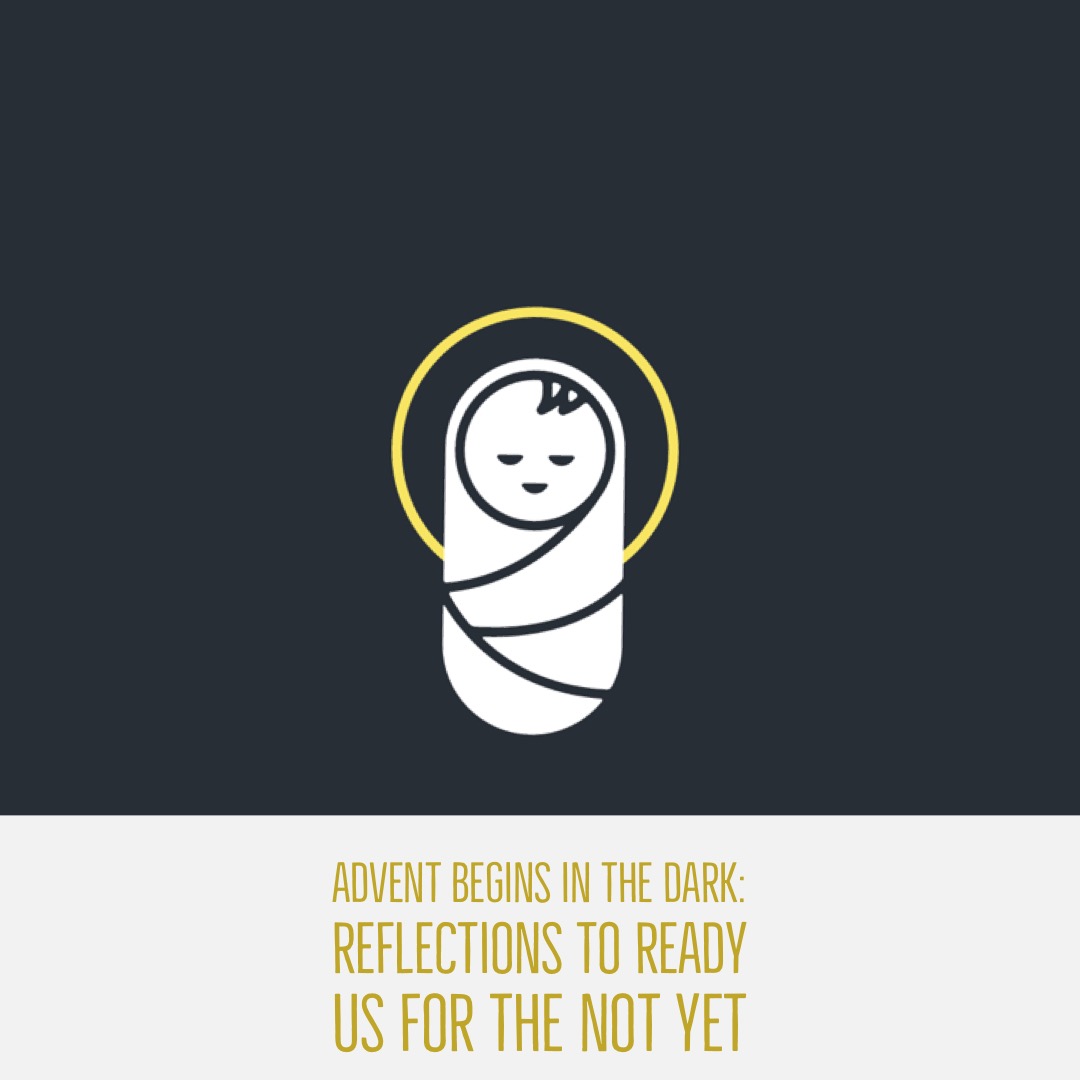
 I recently saw Jim Bakker (yes, that Jim Bakker) on TV hawking flood buckets filled with freeze-dried food so that lucky purchases could be prepped for the great and terrible tribulations that will ocassion the End Times.
I recently saw Jim Bakker (yes, that Jim Bakker) on TV hawking flood buckets filled with freeze-dried food so that lucky purchases could be prepped for the great and terrible tribulations that will ocassion the End Times.
Perhaps when we celebrate this season of the second coming with a theme like Advent Begins in the Dark it’s helpful to remember a basic theological maxim:
God is at least as nice as Jesus.
Of course the converse is just as true:
The Son is as confounding as the Father.
Nonetheless, with hucksters and charlatans forming assumptions about what the Bible forsees for the fulfillment of salvation, it’s important for Christians to recall that the God whose Second Coming we anticipate at Advent is the same God who came to us in Christ at the first Advent.
John the Baptist, who makes his appearance on stage every Advent to announce the turning of the ages, from old to new, isn’t the kind of preacher who puts his listeners to sleep. He makes it unmistakeable that Advent begins in the dark.
It’s true that in the season of Advent we hunker down and confess that the world is full of darkness and depravity (because the world is filled with people like you and me). It’s into such a world as this that the Son of God came and to such a world will he come again. And so, during Advent we Christians sing not about how Santa Claus is coming to town but about how Judgment is coming. Before we light candles on Christmas Eve, in Advent we grope through the dark.
We brace ourselves and read prophets like Isaiah who yearn for God to come down—now— and who gives the preacher John his frightening imagery of God’s hatchet raised and ready to lop off all the unfaithful. John’s lunch box full of locusts is meant to evoke the prophet Elijah, which his happy news only to those who don’t know their bibles, for the Old Testament ends with the prophet Malachi foreboding: “Behold I will send you Elijah before the great and terrible Day of the Lord arrives.”
The Medieval Church, Fleming Rutledge notes, took their cues from Malachi and spent the Sundays of Advent on the themes of Death, Judgment, Heaven, and Eternal Hell. No wonder we’ve always been in a rush to get to Christmas.
Advent, says Fleming, is a season that forbids denial.
Denial that we are sinners.
Just read through the Advent hymns the Church with a capital C has given us through the centuries, hymns like the Dies Irae– which means, the Day of Wrath.
Or take another scripture that’s a standby for the Advent season, where again it’s the prophet Isaiah who declares that we’re such rotten sinners that ‘…all our good deeds, to God, are like filthy rags.’
It’s a frightening indictment. Especially when you recall that the Pharisees and Sadducees, whom John the Baptist is threatening like the first TV preacher in history at the beginning of the Gospels, hoofed it some 20 miles from Jerusalem to the Judean wilderness to be baptized with his baptism of repentance.
To call them, as John does, a brood of vipers with hearts of stone seems unChristian. Certainly, it seems out of step with how we prefer to celebrate this season.
I know I’ve not sent anyone a Christmas card that says: “All your best deeds this year— they’re no better than menstrual rags.”
FYI: That’s how Isaiah puts it in the Hebrew.
And as a preacher, I’m reluctant to hit listeners over the head with John’s winnowing-fork or, like him, holler through a bullhorn, all sticky with honey, that unless you repent and start blooming some righteously good fruit, God’s gonna clear his threshing-floor and burn up chaff like you with unquenchable fire.
No wonder we anesthetize ourselves with presents and pumpkin spice lattes.
With hucksters on TV making God seem awful rather than awe-filling, it helps to remember at Advent that sin isn’t something you do that offends God. Sins are not errors that erode God’s grace. They’re not crimes that aggrieve God and arouse his anger against you. They’re not debits from your account that accumulate and must be reconciled before God can forgive you.
Advent is a season that forbids denial so let’s get this straight and clear.
Sin is about where your love lies. Advent can begin in the darkness, unafraid. Because sin has nothing to do with where God’s love lies.
God’s love, whether you’re a reprobate like King David, a traitor like Judas, a jackass like me, or a comfortably numb suburbanite- God’s love doesn’t change. Because God doesn’t change. There’s nothing you can do to make God love you more and there’s nothing you can do to make God love you less. The Father’s heart is no different when the prodigal returns than on the day he left his Father. God’s heart is no different whether you’re persuaded by John the Baptist’s street preaching or not.
So before you heed John the Baptist this Advent season, before you repent of your sin, do not think you need to repent in order for God to love you. Do not think your sin has anything to do with where God’s love lies. God’s love for you is unconditional— unchanging— because God is unchanging. Don’t think an Advent repentance keeps the winnowing fork at bay. Don’t think Advent penance in any way persuades God’s pathos in your favor. Don’t think that by confessing your sin this Advent you’ve somehow compelled God to change his mind about you.
No.
When God forgives our sins, he is not changing his mind about us. He is changing our minds about him.
God does not change. God’s mind is never anything but loving because God just is Love.
Who the hell are you to think your mediocre, run of the mill sins could change God?
You could dive into the Jordan River and eat a feast’s worth of locusts, but it wouldn’t change God’s love. You see, we grope in the dark during Advent not to change God’s love but to change our love. To stoke not God’s affection for you but your affection.
Because that, says St. Thomas Aquinas, for most of us, is what our sins are. They’re affections. They’re not evil. They’re things we choose because we think they’re good for us: our booze and pills and toys, our forgive-but-not-forget grudges, our heart is in the right place gossip. Our politics. Most of our sins— they’re not evil. They’re affections, flirtations, that if we’re not careful can become lovers when we’re, by baptism, betrothed to only One.
And so we grope in the dark during Advent hoping to grab ahold of and kill our lovers.
Advent is a season that forbids denial because only by confronting our sins can we to die to them.
And die to them we must because Jesus said there’s no way to God except through him, and Jesus shows us there’s no way to God except through suffering and death. There is no other way to God. Jesus died to make it possible for us to die (to our sins) and rise again. And that isn’t easy because there’s no way to avoid the cross. Even boring, mediocre sinners like us. We have to crucify and die to our affections and our addictions, to our ideologies, and our ordinary resentments. Like Jesus, we have to suffer and die not so God can love us but so that we can love God and one another like Jesus.
